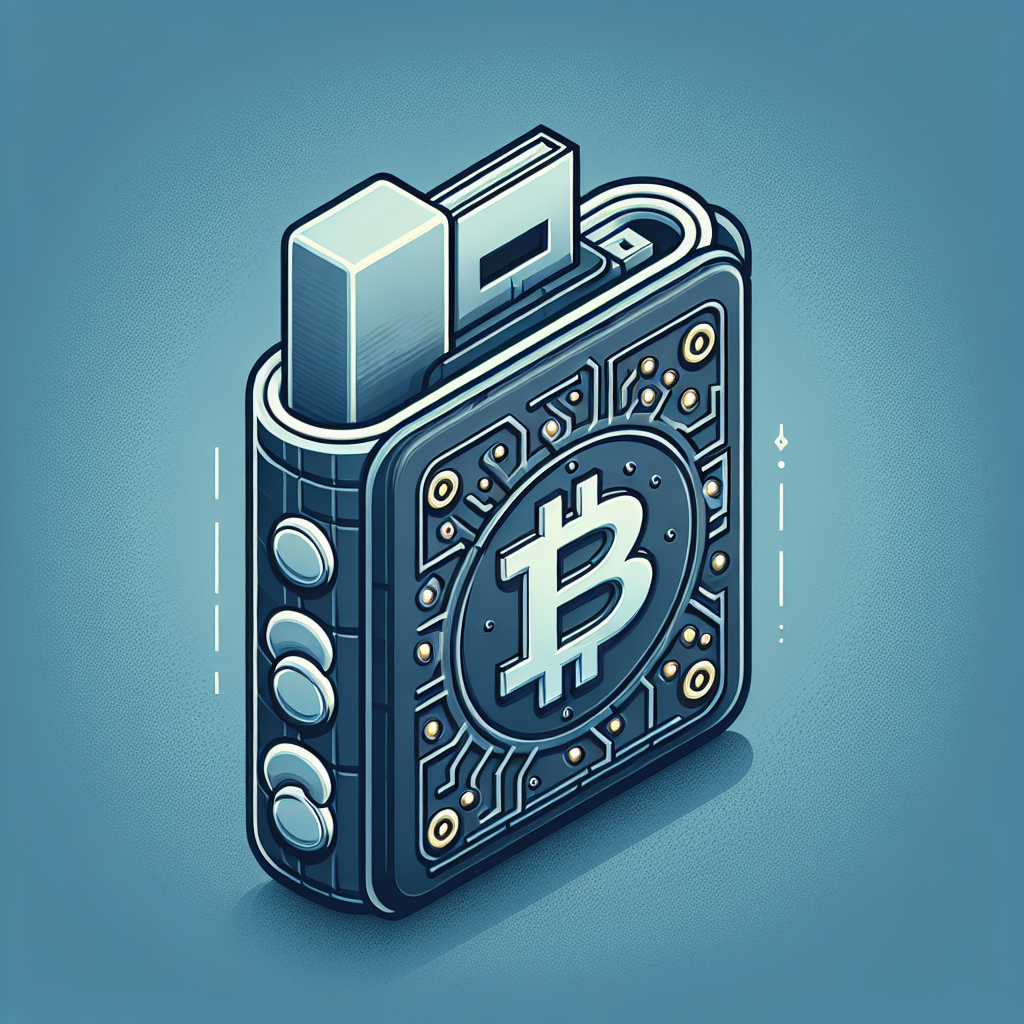Imagine having a secure vault for your valuable digital assets. That’s precisely what cold wallets offer for cryptocurrency users. But what exactly are cold wallets, and how do they protect your precious digital currencies? In this article, we will explore the ins and outs of these innovative wallets, their unique features, and the peace of mind they can bring to your cryptocurrency investments. Get ready to discover the power of cold wallets and their role in safeguarding your digital wealth from potential threats.

What Are Cold Wallets?
Definition of Cold Wallets
Cold wallets are a type of cryptocurrency wallet that stores private keys offline, away from internet-connected devices. These wallets provide an extra layer of security by keeping the keys out of reach of potential hackers and online threats. By storing the keys offline, cold wallets significantly reduce the risk of unauthorized access and theft of cryptocurrencies.
Types of Cold Wallets
There are several types of cold wallets available in the market. Each type offers different features and levels of security. Let’s explore some of the most popular cold wallet options:
Hardware Wallets
How Hardware Wallets Work
Hardware wallets are physical devices specifically designed to store and manage cryptocurrency private keys securely. These wallets generate and store the keys offline, ensuring that they never come into contact with potentially harmful internet-connected devices. When a transaction is required, the hardware wallet securely signs it and then connects to a computer or mobile device to broadcast the transaction to the network.
Benefits of Hardware Wallets
Hardware wallets have gained popularity among cryptocurrency enthusiasts and investors due to the following advantages:
- Enhanced Security: The private keys are stored securely offline, significantly reducing the risk of unauthorized access and theft.
- Convenience: Hardware wallets are portable and easy to use. You can carry them anywhere, making it convenient to manage your cryptocurrencies on the go.
- Multi-Currency Support: Many hardware wallets support multiple cryptocurrencies, allowing you to manage various digital assets in one device.
- Backup and Recovery Options: Hardware wallets provide backup and recovery options, such as mnemonic phrases or seed phrases, ensuring that you can restore your wallet even if the device is lost or damaged.
Examples of Hardware Wallets
Some popular hardware wallet options in the market include:
- Ledger Nano S
- Trezor Model T
- KeepKey
Paper Wallets
What Is a Paper Wallet
A paper wallet refers to a physical printout or a handwritten copy of your public and private keys. It is usually created offline using a generator tool or by manually writing down the keys on a piece of paper. The paper wallet is then stored in a secure location, away from potential threats, such as fire or water damage.
How to Create a Paper Wallet
Creating a paper wallet involves the following steps:
- Generate Key Pair: Use a reputable offline generator tool to create a random public and private key pair.
- Print or Write Down: Print the keys or write them down on a clean piece of paper. Ensure that no one else has access to this information.
- Secure Storage: Store the paper wallet in a safe and dry place, preferably in a tamper-evident envelope or a fireproof safe.
Pros and Cons of Paper Wallets
Paper wallets offer certain benefits, such as:
- Enhanced Security: Since the keys are stored offline and not on any digital device, the risk of cyberattacks is significantly reduced.
- No Hardware Costs: Paper wallets can be created for free, making them an affordable option for those looking to secure their cryptocurrencies.
However, paper wallets also have drawbacks to consider:
- Higher Risk of Physical Damage: Paper can be easily damaged, lost, or destroyed by fire, water, or other environmental factors.
- Inconvenience for Transactions: To access or spend the cryptocurrencies, you need to manually enter the private key into a compatible wallet, which can be time-consuming and error-prone.
Offline Computer Wallets
What Are Offline Computer Wallets
Offline computer wallets, also known as offline software wallets, are software applications that store private keys offline on a computer that is not connected to the internet. These wallets provide a secure way to manage cryptocurrencies by isolating the keys from online threats, such as malware or hacking attempts.
How Offline Computer Wallets Secure Cryptocurrency
Offline computer wallets secure cryptocurrency by keeping the private keys disconnected from the internet. The keys are generated and stored offline on a separate computer, which eliminates the risk of being compromised by online vulnerabilities. When a transaction is needed, the offline computer can be used to sign the transaction securely before using a separate online device to broadcast it to the network.

Air-Gapped Wallets
What Is an Air-Gapped Wallet
An air-gapped wallet, also known as an isolated wallet, is a type of cold wallet that remains completely disconnected from any network or internet connection. This isolation ensures maximum security for storing and managing cryptocurrency private keys.
Advantages of Air-Gapped Wallets
Air-gapped wallets offer several advantages over other cold wallet options:
- Unparalleled Security: By staying disconnected from any network, air-gapped wallets eliminate the risk of remote attacks or data breaches.
- Protection from Malware: Since the wallet remains isolated, it prevents any malicious software from accessing or tampering with the private keys.
- Physical Control: Air-gapped wallets provide full physical control over the storage and management of private keys, giving users peace of mind.
Multi-Signature Wallets
Explanation of Multi-Signature Wallets
Multi-signature wallets, also known as multisig wallets, require multiple private keys to authorize transactions. These wallets provide an extra layer of security by distributing the signing authority among different parties. The required number of signatures can be customized, ensuring that no transaction is authorized without the consensus of all authorized parties.
How Multi-Signature Wallets Enhance Security
Multi-signature wallets offer enhanced security by requiring multiple key holders to approve transactions. This system makes it significantly more challenging for hackers to gain unauthorized access to funds. Even if one key is compromised, the wallet remains secure, as the attacker still needs access to the other authorized keys.
Brain Wallets
What Is a Brain Wallet
A brain wallet is a type of cryptocurrency wallet that allows users to generate their private keys based on a passphrase or memorable information. Instead of relying on a physical device or external software, brain wallets use the mnemonic phrase or passphrase to recreate the private keys deterministically.
Advantages and Disadvantages of Brain Wallets
Brain wallets offer some unique advantages:
- No Dependency on Physical Devices: Since brain wallets recreate keys from a passphrase, there is no need for physical devices, making them convenient and accessible from anywhere.
- Easy to Remember: Users can choose a passphrase that is easy to remember, reducing the risk of forgetting or losing access to their funds.
However, brain wallets come with significant risks and drawbacks:
- Vulnerability to Brute-Force Attacks: If the chosen passphrase is weak or guessable, attackers can easily recreate the keys and steal the funds.
- Lack of Backup Options: If you forget or lose the passphrase, there is no way to recover the funds, resulting in permanent loss.
Vault Services
Definition of Vault Services
Vault services are trusted third-party providers that offer secure storage solutions for cryptocurrencies. These services provide specialized infrastructure and security measures to protect the private keys entrusted to them by users.
Benefits of Using Vault Services
Using vault services for cold wallet storage offers numerous benefits:
- Institutional-Grade Security: Vault services employ robust security protocols, including physical security, encryption, and multi-factor authentication, to safeguard private keys from unauthorized access.
- Simplified Management: With vault services, individuals and businesses can delegate the responsibility of securely storing and managing their private keys, allowing them to focus on other aspects of their cryptocurrency operations.
- Disaster Recovery: Vault services often have backup and contingency plans in place to ensure business continuity, protecting users’ funds even in the event of natural disasters or other unforeseen circumstances.
Security Considerations
Importance of Securing a Cold Wallet
Securing a cold wallet is of utmost importance to protect your cryptocurrency holdings from potential threats and unauthorized access. By implementing proper security measures, you can significantly reduce the risk of losing your funds.
Best Practices for Cold Wallet Security
Here are some best practices to ensure the security of your cold wallet:
- Store Backup Copies: Maintain backup copies of your cold wallet’s private keys in multiple secure locations, such as encrypted USB drives, safe deposit boxes, or fireproof safes.
- Use Strong Passwords: Create strong, unique passwords for online accounts associated with your cold wallets. Use a reputable password manager to securely store and manage these passwords.
- Regularly Update Software: Keep your hardware wallets, offline computer wallets, or other cold wallet software up to date with the latest firmware or software updates to benefit from security enhancements and bug fixes.
- Enable Two-Factor Authentication: Whenever possible, enable two-factor authentication (2FA) on online accounts associated with your cold wallets to add an extra layer of security.
- Be Mindful of Phishing Attempts: Be cautious of phishing emails, websites, or communication requesting your private keys or sensitive information. Always verify the authenticity of the source before sharing any details.
Conclusion
Cold wallets serve as an excellent means of securing cryptocurrency by keeping private keys offline and away from potential online threats. Whether it’s hardware wallets, paper wallets, offline computer wallets, air-gapped wallets, multi-signature wallets, brain wallets, or leveraging vault services, each cold wallet option offers unique features and levels of security. By implementing the recommended security considerations and best practices, you can confidently protect your cryptocurrency investments and ensure a safe and secure experience in the digital asset world.

